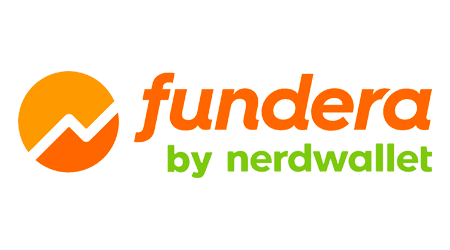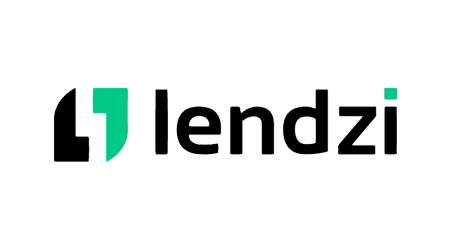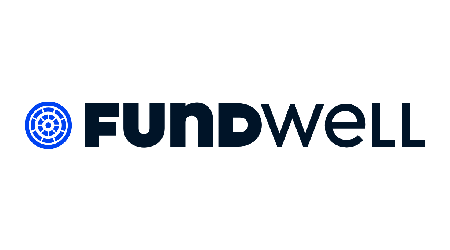A $400,000 business loan comes in many forms, including lines of credit, term loans, SBA loans, merchant cash advances and more — and you have several options to suit a range of credit scores.
Generally, you’ll need at least a couple of years in business and to make over six figures to qualify, though eligibility varies by lender. Weigh multiple lenders to make sure you find the best rates and terms.
Where to get a $400,000 business loan
Most lenders offer $400K business loans, including banks, credit unions, the Small Business Administration (SBA) and online lenders. Established businesses might find the best rates on a business loan of this size with a large national bank. Newer businesses may have better luck with alternative online lenders or SBA loan providers, since it has more relaxed eligibility requirements.
Compare $400,000 business loans
Select your time in business, annual revenue and credit score ranges to find lenders you might qualify with. Select Go to site to get started on your application. Or, visit our review page by choosing More info.
Compare other products
We currently don't have that product, but here are others to consider:
How we picked theseWhat is the Finder Score?
The Finder Score crunches 12+ types of business loans across 35+ lenders. It takes into account the product's interest rate, fees and features, as well as the type of loan eg investor, variable, fixed rate - this gives you a simple score out of 10.
To provide a Score, we compare like-for-like loans. So if you're comparing the best business loans for startups loans, you can see how each business loan stacks up against other business loans with the same borrower type, rate type and repayment type.
How to get a $400,000 business loan
The application process for a $400,000 loan varies by lender but generally involves the following steps:
- Determine the type of loan you need. Whether it’s a term loan for one-time costs or a line of credit for ongoing expenses, consider which loan type makes the most sense for your business.
- Compare lenders offering $400,000 loans. Consider factors such as rates, fees, terms and funding speed.
- Check your eligibility. This may involve filling out an online form for online lenders or contacting a bank directly.
- Gather the required documents. This paperwork includes personal and business tax returns, profit and loss statements, bank statements and other documentation.
- Fill out the application. Completing an application can take a few minutes to over an hour, depending on the lender and loan type.
- Read and sign the contract. Review your final offer, making sure the rates, terms and monthly payments fit your business’s budget. If you agree, sign and submit your contract.
How to qualify for a $400,000 business loan
While a $400,000 business loan is below the average borrowing amount of $660,000, it may still be difficult to qualify if you recently started your business.
To qualify for a loan of this size, you typically need:
- Good personal credit. The credit score you need to get a business loan varies by lender and loan type. Banks typically require a personal credit score of 670 and up, while online lenders may go as low as 520 for short-term financing like MCAs. And for invoice financing or factoring, your credit score may not factor in at all.
- Meet revenue requirements. Minimum revenue requirements can vary significantly by lender, but you’ll typically need to bring in at least $10,000 a month to be considered for a business loan — and possibly more for a $400K loan.
- At least a year or more in business. While you may find some types of lenders or loans willing to work with businesses operating for only six months, most lenders require one to two years in business for this size of loan.
- A personal guarantee. The lender may also ask you for a personal guarantee, especially for unsecured loans not backed by business assets.
How much does a $400K business loan cost?
You can expect competitive rates for a $400,000 business loan if you have strong credit and business financials. However, how much you pay comes down to what kind of loan you get.
For example, a traditional bank term loan may have rates that start around 8% APR, and the SBA caps its 7(a) rates at the prime rate plus 3% (as of January 2025). And for loans under $1 million, SBA upfront fees are at 0%.
Some business loans may also charge origination fees — of about 1% to 5% of the loan amount — or other fees that add to the loan’s cost. Business lines of credit, for example, may come with a number of fees, so it’s important to be aware of any additional costs to borrow money besides interest rates.
Use our business loan calculator to find out how much your loan might cost based on different rates and terms.
Business loan calculator
See how much you'll pay|
Your loan
|
|---|
| Loan amount |
|
$
|
| Loan terms (in years) |
|
|
| Interest rate |
|
%
|
Fill out the form and click on “Calculate” to see your estimated monthly payment.
or
Compare more lendersBased on your loan terms
| Principal | $ |
|---|---|
| Interest | $ |
| Total Cost | $ |
How do payments on a $400,000 loan work?
Most $400,000 loans are term loans with fixed or monthly repayments, while some short-term business loans may require more frequent repayments, such as biweekly, weekly or daily. It’s important to review the repayment terms before finalizing the loan agreement to ensure you can meet payments.
If you apply for a merchant cash advance, you’ll repay your loan with a percentage of your business’s daily sales. If you get an advance on your unpaid invoices with invoice factoring, you won’t repay the factoring company — you just won’t get your invoice’s total value.
8 types of $400,000 business loans
The following are common types of business loans that finance up to $400,000 or more:
1. Term loans
Term loans are the most common type of business loans, and they come with both short-term or long-term options. Interest rates are typically fixed, meaning you’ll repay the loan in equal monthly installments. However, some short-term loans may have weekly payments. Larger term loans — especially from national banks — may have strict requirements to qualify but usually offer competitive rates. Online lenders may have higher rates but can be easier to qualify for.
Consider if you…
- Have a large expense in mind
- Know exactly how much you need
- Prefer predictable monthly payments
Consider other options if you…
- Don’t need a lump sum
- Aren’t sure how much you need to borrow
- Want a renewable funding source
2. Business lines of credit
A business line of credit offers you access to a revolving credit limit that replenishes as you pay it back — although some business LOCs treat each withdrawal as a short-term loan. In general, an LOC acts similar to a credit card but gives you access to cash. It’s one of the most flexible types of business funding because you only pay interest on the funds you use, but loan terms are usually less than 24 months.
Consider if you…
- Have ongoing funding needs
- Don’t know how much you want to borrow
- Want a renewable source of funding
Consider other options if you…
- Need a large lump sum
- Don’t need renewable financing
- Want a longer repayment term
3. SBA loans
Backed by the federal government, SBA loans are provided by banks, credit unions and online lenders. This means if you can’t pay your loan back, the Small Business Administration (SBA) will cover up to 90% of the loan, which can make it easier for some businesses to qualify. However, SBA loans have strict requirements and the application process typically takes longer than for most types of business financing.
Consider if you…
- Don’t qualify for other financing
- Meet SBA loan requirements
- Don’t need fast funding
Consider other options if you…
- Qualify for other loan options
- Can’t meet SBA requirements
- Need fast funding
4. Equipment loans
Equipment loans are a type of financing where the purchase secures the loan — like a car loan — meaning you may qualify for a lower rate than with an unsecured loan. But the downside of equipment loans is that your asset can be seized if you can’t make the payments. Plus, while some equipment lenders finance 100% of the purchase price, others may require a down payment.
Consider if you…
- Need to buy equipment
- Know exactly how much you need
- Can handle the down payment if required
Consider other options if you…
- Aren’t purchasing equipment
- Aren’t sure how much you need
- Don’t have cash for a down payment
5. Commercial real estate loans
If you’re looking to purchase a commercial property or a new building to expand your operation, a commercial real estate loan may be your best financing option. The purchase acts as collateral for the loan, which means you may be able to get a better rate than you could with an unsecured loan. But you’ll typically need to come up with a down payment of at least 10%, and like an equipment loan, you risk losing the property if you can’t afford the payments.
Consider if you…
- Are looking to buy property
- Have cash for a down payment
- Can meet the loan requirements
Consider other options if you…
- Aren’t buying real estate
- Don’t meet the loan requirements
- Don’t have money for a down payment
6. Merchant cash advances
If your company does a lot of debit and credit card sales, a merchant cash advance is an option, although it’s one of the more expensive forms of financing. You take out an advance based on a percentage of your future card sales and pay it back, plus fees, with weekly or daily repayments. This type of funding makes the most sense for retailers, e-commerce businesses or others that have a lot of credit card sales.
Consider if you…
- Do a lot of card sales
- Don’t qualify for less expensive financing
- Can manage weekly or daily repayments
Consider other options if you…
- Don’t have many credit card sales
- Qualify for cheaper financing
- Can’t manage the repayment schedule
7. Invoice factoring
Invoice factoring is a type of short-term funding that isn’t a loan at all. Instead, you sell a percentage of your outstanding invoices to a factoring company in exchange for a lump sum of cash. Then, as your customers pay the factoring company directly, it sends you the difference minus its fee. While invoice factoring typically offers fast funding, rates are high.
Consider if you…
- Can’t qualify for cheaper funding
- Are a business-to-business (B2B) company
- Have a lot of unpaid invoices
Consider other options if you…
- Qualify for less expensive financing
- Aren’t a B2B company
- Don’t have many unpaid invoices
8. Invoice financing
Similar to invoice factoring, invoice financing also uses your invoices as leverage for funding. But instead of selling your invoices to a factoring company, you take out an advance based on a percentage of the unpaid invoices. As your customers settle their bills, you’ll repay the advance plus fees. The advantage of invoice financing over factoring is you maintain control of your invoices, but it’s expensive and the repayment schedule can be rigorous.
Consider if you…
- Are a B2B company
- Have a lot of outstanding invoices
- Don’t qualify for less expensive financing
Consider other options if you…
- Qualify for cheaper funding
- Don’t have a B2B company
- Don’t have a lot of unpaid invoices
Secured vs. unsecured business loans for $400,000
Secured loans require collateral, making them easier to qualify for if you have a lower credit score. You’ll need some type of asset that can back the loan, which goes through an appraisal process. These types of loans may offer a shot at lower APRs and more favorable terms since the lender is minimizing its risk with your collateral on the line.
Unsecured loans don’t require collateral but may require a personal guarantee and typically come with higher costs and APRs.
Please share your thoughts:
All responses are collected anonymously and used for internal data purposes only.
What is your primary need for a business loan?
Bottom line
To get a $400,000 business loan, you may need several years in business as well as a good credit profile, though some lenders have less strict requirements. Compare top business lenders and get prequalified to find the best options for your situation.
Frequently asked questions
Can I get a $400,000 SBA loan?
Yes, you can opt for a $400,000 SBA loan. These loans offer low rates and higher amounts to business owners who have a tough time qualifying with other private lenders. But the process is competitive, and many applicants don’t walk away with an approved loan. Usually, the higher the loan amount, the more annual revenue you need.
Can I get a $400,000 loan with bad credit?
You may be able to get a $400,000 business loan with bad credit if you apply for a merchant cash advance or invoice factoring or financing — but you’ll need the revenue or unpaid invoices to support this loan amount. However, prepare to pay more in fees and interest if you get a bad credit business loan.
Can I get a loan for $400,000 to start a business?
Yes, but it’s not that common for startups or new businesses to get a startup loan of this amount. Lenders such as banks, SBA lenders and online lenders may be open to working with startups seeking this amount, but only if you meet strict requirements.
Other business loan amounts:
Ask a question
More guides on Finder
-
8 Best Commercial Truck Loans (2026)
Best financing options for trucking companies to cover licensing, new trucks, insurance, vehicle maintenance and more.
-
How to Get a Million Dollar Business Loan in 2026
We look at eligibility requirements, potential costs, SBA options and more.
-
$50K No-Doc Business Loans: Fast Funding, Apply Today (2026)
Compare $50,000 no-doc business loans for an expedited lending process.
-
How to Get a $5,000 Business Loan (2026)
Compare $5,000 business loans and what you need to qualify.
-
Compare $40,000 business loans (2026)
Find a $40,000 business loan for your business and calculate the cost before you apply.
-
How to Get a $10 Million Business Loan in 2026
Buy real estate, another business or expand your enterprise.
-
How to Get a $3 Million Business Loan in 2026
You’ll have an easier time qualifying if you have strong credit and high revenue.
-
How to Get a $5 Million Business Loan in 2026
Find financing to grow your business — or even buy another.
-
Compare $10,000 Business Loans in 2026
Stay away from big banks for a loan of this size.




